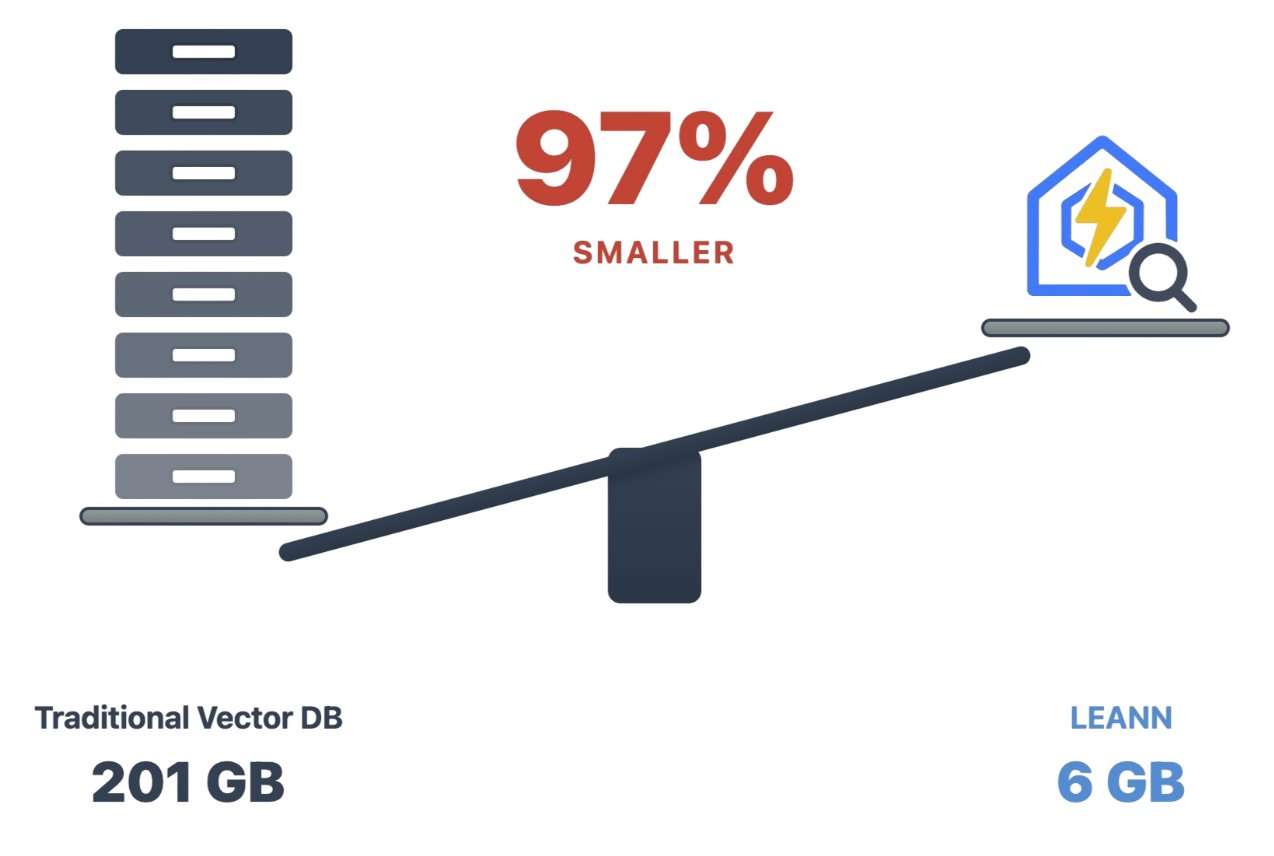
Introducing LEANN: A Revolutionary Vector Database for Personal AI
In the ever-evolving field of artificial intelligence, embedding-based search techniques are gaining traction over traditional keyword-based methods. These advanced techniques excel in capturing semantic similarity through dense vector representations and approximate nearest neighbor (ANN) search. However, the conventional ANN data structures often come with a significant storage overhead, typically ranging from 1.5 to 7 times the size of the original data. While this overhead is manageable for large-scale web applications, it becomes impractical for personal devices and sizable datasets.
To address this challenge, the introduction of LEANN marks a significant milestone. LEANN is touted as the tiniest vector database that aims to democratize personal AI by offering a storage-efficient solution for ANN search. The key advantage of LEANN lies in its ability to reduce storage requirements to under 5% of the original data size, a critical factor for effective edge deployment.
The Storage Challenge
Despite the promise of existing techniques like product quantization (PQ), many solutions either compromise on accuracy or introduce increased search latency. This has highlighted the need for a more efficient approach that does not sacrifice performance for reduced storage. LEANN’s innovative design seeks to fill this gap, making it particularly appealing for applications that require quick and reliable access to data without the burden of excessive storage costs.
State-of-the-Art Techniques
Vector search methods heavily rely on inverted file (IVF) structures and proximity graphs. Leading methods such as HNSW (Hierarchical Navigable Small World), NSG (Navigable Small World Graph), and Vamana are recognized as state-of-the-art in this domain. These approaches facilitate swift, accurate searches, which are essential in today's data-driven environments.
The introduction of LEANN is expected to significantly impact how personal AI applications manage data storage and retrieval, ultimately enhancing user experience and accessibility.
As AI continues to shape various industries, innovations like LEANN will play a pivotal role in making powerful AI tools more accessible to individuals and small enterprises, leveling the playing field in technology.
Rocket Commentary
The article presents an optimistic view on the advancements in artificial intelligence, particularly the emergence of embedding-based search techniques and the introduction of LEANN. While the promise of LEANN as a storage-efficient vector database is noteworthy, it raises important questions about the balance between innovation and practicality. For small-scale applications, the existing storage overhead of traditional ANN structures can be a barrier to entry. LEANN’s potential to democratize AI access is commendable, yet we must remain vigilant about ensuring these technologies are both ethical and accessible. As the industry moves toward personal AI, it is crucial that we address not only the technical challenges but also the broader implications for users and businesses. The opportunity lies in leveraging these advancements to create systems that are not only efficient but also equitable, ultimately transforming how individuals and organizations interact with AI.
Read the Original Article
This summary was created from the original article. Click below to read the full story from the source.
Read Original Article